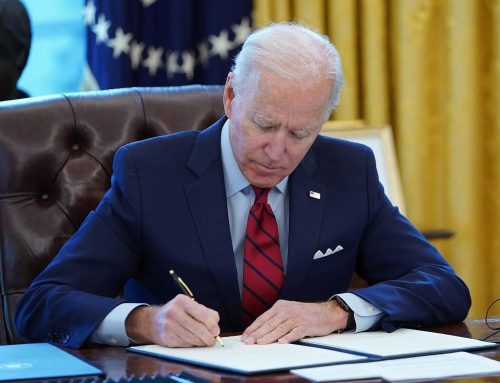What if I Applied for Naturalization Based on Marriage, but I am now Separated?
If you are a Lawful Permanent Resident (LPR; also known as a green card holder) of the United States, you can become eligible for naturalization (to become a U.S. citizen) five years after you receive your green card, provided that you meet all of the other requirements set forth by the U.S. Citizenship and Immigration Services (USCIS). However, if you are married to, and living with, a U.S. citizen (and your spouse has been a U.S. citizen for the last three years), you are eligible for naturalization three years after receiving your green card. You can take advantage of this shortened 3-year wait period for spouses of U.S. citizens, even if your green card was not based on your marriage to that U.S. citizen. You can file the application for citizenship 90 days before your eligibility. So, for example, if you are applying based on 5-year permanent residence, then you can apply 90 days before the 5 year anniversary of your permanent residence.
However, sometimes your circumstances may change while your naturalization application is pending. For example, you may have applied for naturalization based on your three-year residence in the United States while married to and living with a U.S. Citizen. But while your naturalization application is pending, you may have separated from your U.S. citizen spouse. You now wonder whether you are still eligible for naturalization.
This article will help explain some basic questions about whether you are still eligible for naturalization if you separated from your U.S. citizen spouse after applying for U.S. citizenship based on your marriage. Whether you are legally separated, informally separated, and involuntarily separated from your U.S. citizen spouse while your naturalization application is pending, we encourage you to talk to an experienced lawyer directly about your specific case in order to avoid any potential problems or complications.
The eligibility requirements for naturalization based on 3-years of LPR status come from the Immigration and Naturalization Act, Section 319 (8 USC 1430) and Code of Federal Regulations, Subchapter C – Nationality Regulations (8 CFR § 319.1). We will call the first one – INA and the latter CFR.
Am I Required to Remain Married With My U.S. Citizen Spouse?
Under both the INA and CFR, the courts interpret that, if you apply for citizenship based on your 3-year LPR status and marriage with a U.S. citizen, you must remain married, i.e. not divorced, up until the date of your oath ceremony. This means that, if you divorce before your citizenship interview or between your citizenship interview and your oath ceremony, you will loose your eligibility and will need to wait for 5-year eligibility instead of 3.
Am I Required to Live Together With My U.S. Citizen Spouse?
The INA and CFR differ on this point. According to the INA, the 3-year citizenship applicant must “live in marital union” at the time of filing the application. 8 USC 1430(a). However, the CFR states that the applicant must be living in marital union with the citizen spouse for the three years preceding the date of “examination.” 8 CFR § 319.1(a)(3). The CFR says that the applicant and the U.S. Citizen spouse must live together up until the interview. As of 10/19/2022, the USCIS applies the INA interpretation and requires joint residency only up to the time of filing. This, however, may change.
“Living in marital union” means that you, the applicant, and your U.S. citizen spouse reside together.
As the applicant, you are not eligible for naturalization if:
- You are not residing with your U.S. citizen spouse at the time of filing or during the time in which you are required to be living in marital union with the citizen spouse; or
- If at any time prior to taking the Oath of Allegiance, your spousal relationship is terminated or altered to such an extent, then you or your U.S. citizen spouse cannot be considered as spouses.
In all cases, you, as the applicant, must prove that you have lived in marital union with your U.S. citizen spouse for the required period of time.
What if I am Legally Separated?
If you, the applicant, are legally separated from your U.S. Citizen spouse, you may not be eligible for naturalization based on a three-year residence in the United States, and your pending naturalization application may not be approved. USCIS defines “legal separation” as a formal process where the rights of a married couple are altered by a judicial decree, but without eliminating the marital relationship (divorce). USCIS explains that in most cases, after a legal separation, you will no longer be actually residing with your U.S. citizen spouse, and therefore you will not be living in marital union with your U.S. citizen spouse.
However, USCIS notes that even if you and your U.S. citizen spouse continue to reside in the same household, but if the marital relationship has been altered by legal separation, you will not be considered to be living together in marital union.
According to USCIS, you are not living in a marital union with your U.S. citizen spouse during any period of time in which you and your citizen spouse are legally separated. If you are legally separated from your U.S. citizen spouse during the time period in which you must be living in a marital union, then you are not eligible to naturalize as the spouse of a U.S. citizen (three years after receiving your green card). However, normally you will still be able to naturalize based on five-year residence in the U.S.
What if I am Informally Separated?
In many instances, spouses may separate without obtaining a divorce or formalizing the separation. If you are informally separated from your U.S. citizen spouse, you may be eligible for naturalization, and your naturalization may be approved on a case-by-case basis.
There are several factors that are considered when the immigration officer is making the determination whether you are eligible for naturalization. The factors include:
- The length of separation;
- Whether you and your spouse continue to support each other and your children (if any) during the separation;
- Whether you and your spouse intend to separate permanently; and
- Whether you or your spouse become(s) involved in a relationship with others during separation.
According to USCIS, if you are no longer residing with your U.S. citizen spouse, that means you are not living in a marital union. However, if you and your U.S. citizen spouse continue to reside in the same household, an immigration officer must determine your eligibility for naturalization as the spouse of a U.S. citizen on a case-by-case basis. If the officer determines that there is “marital disunity,” your naturalization application may be denied.
What if I Am Involuntarily Separated?
If you are involuntarily separated while your naturalization application is pending, you may still be eligible for naturalization, and your naturalization application may be approved under limited circumstances. USCIS states that under very limited circumstances and when there is no indication of marital disunity, you, the applicant, may be able to demonstrate that you are living in marital union with your U.S. citizen spouse even though you do not actually reside with your U.S. citizen spouse.
You are eligible for naturalization without living in marital union, if the separation is due to circumstances beyond your control, such as:
- Service in the U.S. armed forces; or
- Required travel or relocation for employment.
Please note that USCIS does not consider incarceration during the time of required living in marital union to be an involuntary separation.
In case of separation or change of any other circumstances, you must properly notify the USCIS. A failure to disclose such information to the USCIS may result not only in the rejection of your case, but also finding of material misrepresentation, which would demonstrate the lack of moral character, thereby restarting the continuous presence requirement for your naturalization. For example, if you got separated from your citizen spouse, based on marriage with whom you filed your 3-year based citizenship application, then failure to disclose this information at the interview will almost certainly cause the finding of lack of moral character. In such a case, you will not be able to get citizenship even if you wait for your 5-year eligibility from the date of your initial green-card, because the clock for your 5-year eligibility will restart from the date when you were found lacking moral character by failing to disclose such an important and material matter to the USCIS.
It is important to get in touch with a good immigration lawyer in the United States as early as possible to avoid potential problems and to plan the best immigration strategy for your family. Attorneys at I.S. Law Firm have provided immigration help to many immigrants and their families. To learn more about our services and for consultation, please contact us at +1-703-527-1779 or via e-mail: [email protected] .
Legal Disclaimer: https://www.islawfirm.com/legal-disclaimer/






